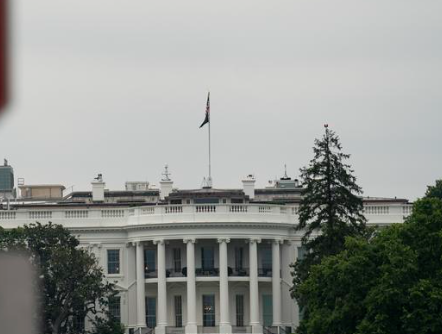The Biden Administration has confirmed that a 100% tariff on Chinese electric vehicles (EVs) will go into effect in two weeks, marking a significant escalation in the ongoing trade war between the U.S. and China. This decision follows an announcement made four months ago by the Office of the United States Trade Representative (USTR) to significantly increase tariffs on several Chinese imports. The new tariffs aim to target China’s state-driven subsidies and protect U.S. manufacturers from losing market share to rapidly expanding Chinese EV automakers.
China to U.S.: End Tariffs on Imports Immediately or Face Retaliation
Beijing has condemned the latest U.S. tariff increases, including a 100% duty on Chinese electric vehicles, scheduled to take effect on September 27.
In response, China’s Commerce Ministry warned, “China… pic.twitter.com/QATOQRmnql
— DailyNoah.com (@DailyNoahNews) September 14, 2024
The U.S. is not alone in its concerns about China’s increasing dominance in the EV market. The European Union initiated its own investigation into Chinese EV subsidies last year after automakers like BYD, NIO, and XPeng began exporting their vehicles to Europe. The EU probe concluded that Chinese EVs were “unfairly” subsidized, prompting Europe to consider tariffs of its own on Chinese imports. The U.S., however, acted swiftly, proposing a quadrupling of tariffs on Chinese EVs, increasing them from 25% to 100%.
The tariffs, set to take effect on September 27, 2024, apply not only to EVs but also to other critical industries. Solar cells will face a 50% tariff, while steel, aluminum, and EV batteries will be hit with a 25% tariff. Additionally, the USTR has announced that further tariffs on Chinese semiconductors will be introduced in 2025, with specific duties on polysilicon used in solar panels and silicon wafers.
Lael Brainard, the White House’s chief economic advisor, described these tariffs as “tough, targeted” measures intended to counteract China’s state-subsidized products. Brainard explained that the 100% tariff on Chinese EVs is designed to prevent China from replicating its rapid market dominance in the U.S., as it has done in other global regions. She emphasized that the Biden Administration’s goal is to bolster U.S. manufacturing and reduce reliance on China’s supply chain, encouraging the development of industries within North America.
Despite these moves, China has threatened to retaliate against the tariffs, accusing the U.S. of “bullying” and vowing to take countermeasures. This tension between two of the world’s largest economies adds to a growing list of trade disputes, including recent actions by Canada, which has also announced its own 100% tariff on Chinese EVs, aligning with the U.S. approach.
The U.S. administration on Friday finalized sharp tariff hikes on some Chinese imports, including a 100 percent duty on electric vehicles (EVs), drawing harsh criticism from industrial insiders and experts https://t.co/i1I2znoVrV pic.twitter.com/cQEPaX0LMJ
— China Xinhua Economy (@XinhuaEconomy) September 14, 2024
In addition to EVs, the U.S. has expanded its tariffs on other Chinese imports, doubling duties on medical supplies such as face masks, surgical gloves, and syringes. Furthermore, a 25% tariff on lithium-ion batteries, minerals, and components essential for EV production is set to begin this month, with additional tariffs on electronics like laptops and cell phones expected to take effect in 2026.
As the trade war between the U.S. and China intensifies, the new tariffs are likely to impact consumers, industries, and global markets, with both sides preparing for further escalation.
Key Points:
i. The U.S. will implement a 100% tariff on Chinese-built electric vehicles (EVs) starting September 27, 2024, amid escalating trade tensions with China.
ii. Additional tariffs include a 50% duty on solar cells and a 25% tariff on steel, aluminum, and EV batteries, with further tariffs on semiconductors expected in 2025.
iii. The Biden Administration aims to counter China’s state-driven subsidies, particularly in the EV sector, to protect U.S. manufacturers from unfair competition.
iv. China has threatened retaliation, accusing the U.S. of “bullying,” while Canada has followed the U.S. lead by imposing its own 100% tariff on Chinese EVs.
v. Other Chinese imports, including medical supplies and electronics, will also face new tariffs, with a 25% tariff on lithium-ion batteries and EV components starting this month.
Susan Guglielmo – Reprinted with permission of Whatfinger News



